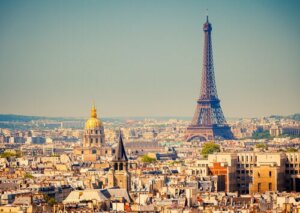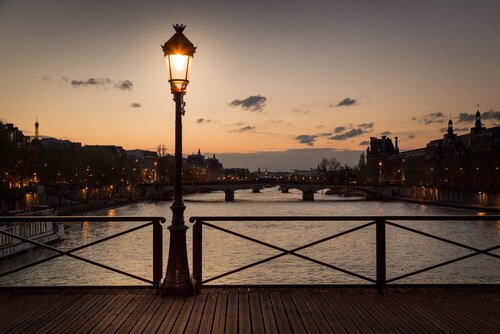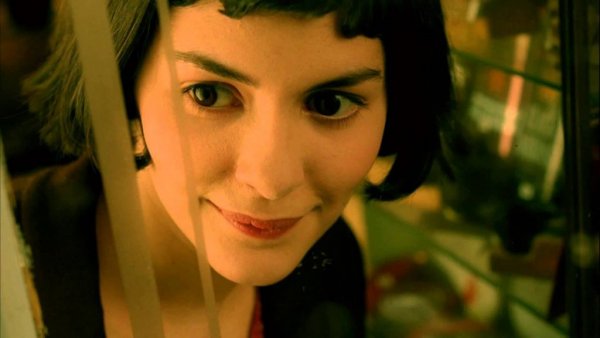Do You Know What Paris Syndrome Is?


Reviewed and approved by the psychologist Sergio De Dios González
Paris syndrome was first identified by a psychiatrist named Hiroaki Ota. Although it’s mostly suffered by people of Japanese or Asian origin, it can also occur in travelers from other parts of the world. It’s especially prevalent in those whose culture is rather different from that of Paris.
In the case of Asian people, they experience a profound shock. This can even cause trauma or physical symptoms, as well as nervous breakdowns. Why does this happen? Basically, because of the ‘clash’ of customs and the expectations they have about their trip.
Help for tourists
The Embassy of Japan in France has decided to offer a care service to tourists suffering from Paris Syndrome. However, not a great deal of people experience it, especially considering that more than a million Japanese visit the ‘City of Light’ every year. Nevertheless, the numbers are increasing. Indeed, this city that houses the Eiffel Tower and the Arc de Triomphe can have a profound effect on many people.
Most of those who suffer from Paris Syndrome are women over 30 years of age. Their idea of Paris as a magical, romantic place, ideal for finding love, etc. comes from movies and books, as well as popular imagination.

As a matter of fact, tourists from any country might be surprised by the real Paris and the difference between what they’d imagined it to be. However, the Japanese tend to exhibit more intense symptoms. In fact, the impact of the cultural shock is such that they often become traumatized and even need medical assistance. It may sound extreme, but it’s true.
These tourists’ idyllic vision of Paris is due to what they’ve seen in movies such as Amelié. In this movie, we see the romantic Champs Elysees, the Louvre Museum, Notre Dame Cathedral, the Seine River, the picturesque neighborhood of Montmartre, and, of course, the fabulous Eiffel Tower. Nevertheless, in reality, there’s much more than these famous sights, fashion, traditional cafes, and beautiful women in Paris. There’s noise, rudeness, jostling, large crowds, dirt, pollution…
In addition, the French character is typical of the Mediterranean personality and totally different from that of the Japanese. They have an extremely calm and cordial culture. On the other hand, Parisians tend to be extroverted and noisy. They speak loudly in the street and have no problem arguing with each other in a café, etc. Quite the opposite occurs in the cities of Japan, even in overcrowded Tokyo. Their people are more cultured, helpful, and measured. They’re also less ’emotional’ and more rational.

Alien behavior
Therefore, a Japanese tourist arriving in Paris is met with behavior that’s completely alien to them. Furthermore, if they imagined the French capital as something out of a fairy tale, it’s even worse for them. As a matter of fact, for any traveler, arriving at a place where people shout, traffic horns beep, and residents aren’t courteous or helpful to them (this is a generalization but it does happen), it can be a great shock.
For the Japanese affected by the Paris Syndrome, the reality of this metropolis overwhelms them and their body says ‘enough’. The Embassy, which has a 24-hour hotline, claims that the shock occurs during the first day and doesn’t last more than 48 hours. After this stage, visitors start to enjoy all the wonders that The City of Light has to offer.
Something similar can happen with other important and well-known cities. The example that most closely resembles Paris is that of New York. That’s because, in the movies, we see the Brooklyn Bridge, Central Park, and the snowy streets at Christmas. However, when we arrive, it’s another reality that greets us.
Paris syndrome was first identified by a psychiatrist named Hiroaki Ota. Although it’s mostly suffered by people of Japanese or Asian origin, it can also occur in travelers from other parts of the world. It’s especially prevalent in those whose culture is rather different from that of Paris.
In the case of Asian people, they experience a profound shock. This can even cause trauma or physical symptoms, as well as nervous breakdowns. Why does this happen? Basically, because of the ‘clash’ of customs and the expectations they have about their trip.
Help for tourists
The Embassy of Japan in France has decided to offer a care service to tourists suffering from Paris Syndrome. However, not a great deal of people experience it, especially considering that more than a million Japanese visit the ‘City of Light’ every year. Nevertheless, the numbers are increasing. Indeed, this city that houses the Eiffel Tower and the Arc de Triomphe can have a profound effect on many people.
Most of those who suffer from Paris Syndrome are women over 30 years of age. Their idea of Paris as a magical, romantic place, ideal for finding love, etc. comes from movies and books, as well as popular imagination.

As a matter of fact, tourists from any country might be surprised by the real Paris and the difference between what they’d imagined it to be. However, the Japanese tend to exhibit more intense symptoms. In fact, the impact of the cultural shock is such that they often become traumatized and even need medical assistance. It may sound extreme, but it’s true.
These tourists’ idyllic vision of Paris is due to what they’ve seen in movies such as Amelié. In this movie, we see the romantic Champs Elysees, the Louvre Museum, Notre Dame Cathedral, the Seine River, the picturesque neighborhood of Montmartre, and, of course, the fabulous Eiffel Tower. Nevertheless, in reality, there’s much more than these famous sights, fashion, traditional cafes, and beautiful women in Paris. There’s noise, rudeness, jostling, large crowds, dirt, pollution…
In addition, the French character is typical of the Mediterranean personality and totally different from that of the Japanese. They have an extremely calm and cordial culture. On the other hand, Parisians tend to be extroverted and noisy. They speak loudly in the street and have no problem arguing with each other in a café, etc. Quite the opposite occurs in the cities of Japan, even in overcrowded Tokyo. Their people are more cultured, helpful, and measured. They’re also less ’emotional’ and more rational.

Alien behavior
Therefore, a Japanese tourist arriving in Paris is met with behavior that’s completely alien to them. Furthermore, if they imagined the French capital as something out of a fairy tale, it’s even worse for them. As a matter of fact, for any traveler, arriving at a place where people shout, traffic horns beep, and residents aren’t courteous or helpful to them (this is a generalization but it does happen), it can be a great shock.
For the Japanese affected by the Paris Syndrome, the reality of this metropolis overwhelms them and their body says ‘enough’. The Embassy, which has a 24-hour hotline, claims that the shock occurs during the first day and doesn’t last more than 48 hours. After this stage, visitors start to enjoy all the wonders that The City of Light has to offer.
Something similar can happen with other important and well-known cities. The example that most closely resembles Paris is that of New York. That’s because, in the movies, we see the Brooklyn Bridge, Central Park, and the snowy streets at Christmas. However, when we arrive, it’s another reality that greets us.
This text is provided for informational purposes only and does not replace consultation with a professional. If in doubt, consult your specialist.







